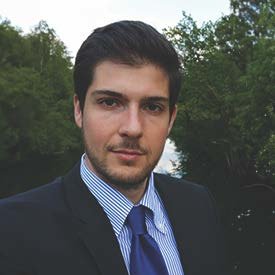Edoardo Cascioli
I am an energy and nuclear engineer graduated at La Sapienza University of Rome in 2015. I carried out my MSc thesis after a six-month internship at the Belgian Nuclear Research Centre (SCK•CEN) as part of the safety group in the frame of project MYRRHA. Afterwards, I became a PhD candidate at Delft University of Technology (TUD) joining the transport phenomena group. I spend the majority of the working time at the same SCK•CEN which is sponsoring, together with ENGIE, my research project. Anyway, I regularly come back in TUD to have progress meetings with my supervisor and colleagues. I like travelling, learning different languages and exploiting all the possibilities this challenging experience is giving me. My passions are science, technology and photography but basketball and my Harley Davidson have their special spaces in my heart. Family is the strongest value of my life.
Research
Study of low Prandtl number heat transfer in the E-SCAPE liquid metal pool facility
Liquid metal-cooled fast reactors can contribute to the future of nuclear energy production thanks to the possibility of using more efficiently natural resources and reducing the amount and lifetime of nuclear waste. Sodium and lead(-alloys) are envisaged to be the most likely choices for the primary cooling systems of such reactors. At SCK•CEN, the Multi-purpose hYbrid Research Reactor for Hightech Applications (MYRRHA) is being designed to be a pool-type fast reactor prototype cooled by Lead-Bismuth Eutectic (LBE).
Thermal hydraulics is recognized Thermal hydraulics is a key aspect in the design phase and safety analyses of such advanced systems. Three-dimensional flows of liquid metals need to be carefully investigated, modelled and tested in natural and forced convection regimes. In large compartments as the upper and lower plena of MYRRHA, typical flow patterns are characterized by multi-jet interactions. Hence, the jet flow can be considered as one of the most representative flow regimes to be analysed to achieve more insights in mixing phenomena within such advanced pool-type systems.
Industrial CFD tools assume turbulent heat fluxes to be analogously modelled to Reynolds stresses in the time-averaged momentum and energy equations respectively. This hypothesis is mainly valid for forced convection flows with Pr = 1. Since liquid metals are characterized by significantly lower Pr values (i.e. PrLBE = 0.025), the previous assumption is not applicable and innovative engineering THT models have been proposed more recently. The latter have mainly been developed and tested on wall-confined flows since there is still a limited database of reference to wall-unconfined flows.
Hence, the goal of our PhD research is to provide new database of reference to jet flows with low-Pr fluids and improve available low-Pr THT models. LESs of a forced single-jet flow with heated co-flow at Pr = 0.71, 0.2, 0.025 and 0.006 were performed and experimentally validated in collaboration with The von Karman Institute for Fluid Dynamics. Here, PIV and probes measurements are performed on the MYRTE wind tunnel which is operate air (Pr = 0.71) and He-Xe (Pr = 0.2). On the basis of the generated results and other available databases of reference, RANS simulations are being performed on the same forced single-jet case and a non-isothermal triple-jet flow in the same range of Pr values. Different THT models to low-Pr were implemented in OpenFoam and their performances are being assessed to select the most promising methodology.
Approaching the actual configuration of MYRRHA, the selected THT model will be improved to achieve a flow- and geometry-independent modelling of mixing phenomena in liquid metals. Additional simulations and experimental activities will be performed on more realistic configurations, such as the European-SCAled Pool Experiment (E-SCAPE) which represents a 1/6 scaled version of the primary loop of MYRRHA cooled by LBE which is under operation at SCK•CEN.


MSc. Edoardo Cascioli
PhD Candidate
- E.Cascioli@tudelft.nl
-
TU Delft:
Building 58, F2.130
van der Maasweg 9
2629HZ, Delft
SCK-CEN (Belgium):